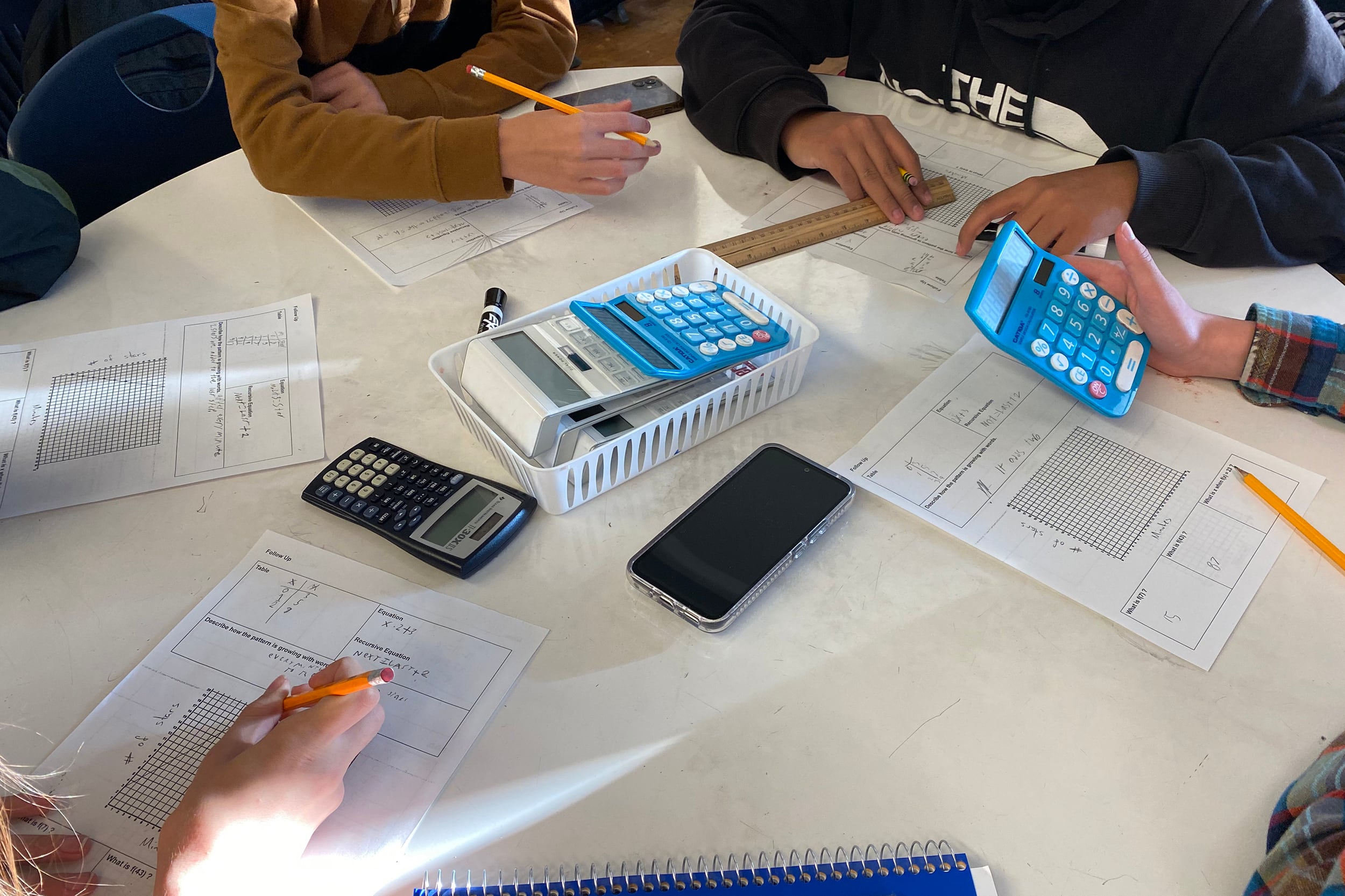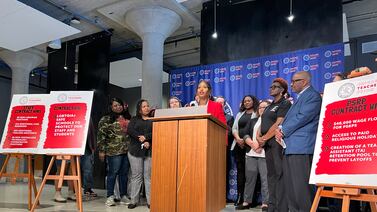Sign up for Chalkbeat Colorado’s free daily newsletter to get the latest reporting from us, plus curated news from other Colorado outlets, delivered to your inbox.
A digital math tool that Colorado Gov. Jared Polis made available for free to schools helped contribute to higher math scores statewide, according to a one-year study conducted by the company that makes the tool and released by Polis’ office last week.
But one local expert cautioned against attributing the math gains entirely to the digital tool, called Zearn Math.
University of Colorado Boulder math professor David Webb, who reviewed the study, said it confirms that Zearn contributed to a low to modest increase in student math knowledge. But Webb said that the return to in-person instruction after COVID school building shutdowns likely also had a positive effect on math achievement.
“The data they had available was something they could organize and produce for the community to say, ‘Well, you know, no harm has been done. And it’s heading in a positive trend,’” Webb said of the one-year study by the nonprofit Zearn.
Polis announced the contract with Zearn in 2023 without a competitive bidding process. The state used $9 million in federal pandemic relief funds to pay for Zearn licenses that allow schools to use the program for free in the 2023-24 and 2024-25 school years.
The state’s contract with Zearn was part of a multi-pronged effort to boost math scores after state and national scores showed pandemic learning loss among students. Polis and state lawmakers passed a $25 million bipartisan law that expanded after-school math tutoring, offered more expanded teacher training, and encouraged districts to adopt high-quality curriculum. The bill also called for the state to set aside funds for a “digital math accelerator.”
“We are taking an all-hands-on-deck approach to boosting student math achievement to make sure Colorado kids have the support and practice they need to excel in math,” Polis said in a news release last week announcing the results of the Zearn study. “This past year, students across Colorado have benefited from access to high-quality digital platforms that have boosted math proficiency and helped Colorado students to learn and grow.”
This year, about 920 elementary and middle schools used the platform, up from 750 in 2023-24, according to a Polis spokeswoman. Although districts will no longer have free access to Zearn during next school year, district officials could choose to contract with the company.
The Zearn study says the nonprofit recommends students complete three or more lessons per week for the best results. That means students should spend about 90 minutes per week on the platform.
About 20,000 students used the program in 2023-24, and about 3,500 consistently used the program three days a week as intended, according to the study.
The study relies on data from a sample of 6,000 students in grades four through eight and represents several large and small districts across the state, according to a Polis spokeswoman. Researchers compared students who completed Zearn lessons to a group of students who didn’t use the digital tool.
Compared to students who didn’t use the program, students who used Zearn Math scored higher on state standardized math tests across all student subgroups, the study says. Students who consistently used the tool saw the most improvement.
“As a nonprofit built by teachers, we know how committed Colorado educators are to helping kids catch up and move forward in math. We have been privileged to be able to support them in this effort,” said Zearn CEO and co-founder Shalinee Sharma in a news release.
In 2024, Colorado elementary school students statewide scored higher on state standardized math tests than in 2019. Middle school students haven’t exceeded pre-pandemic scores but have shown improvement.
The 2024 National Assessment of Educational Progress, known as the Nation’s Report Card, showed in January that Colorado student math scores have started to rebound but aren’t at pre-pandemic levels. NAEP is given every two years in math and reading to a representative subset of U.S. students in grades four and eight.
There are many reasons why Colorado student math scores increased, Webb said.
Webb said digital learning tools can help, especially if teachers have been trained properly on how to use them. But they’re likely less of a factor in student achievement increases overall, he said. Webb said in-person instruction has likely had a highly positive impact on math instruction because students can more easily get peer and teacher feedback.
And the districts he’s worked with have focused on teaching skills that help educators better convey information to students, including how to create engaging lessons.
“Teachers matter,” Webb said. “Schools matter.”
Jason Gonzales is a reporter covering higher education and the Colorado legislature. Chalkbeat Colorado partners with Open Campus on higher education coverage. Contact Jason at jgonzales@chalkbeat.org.







